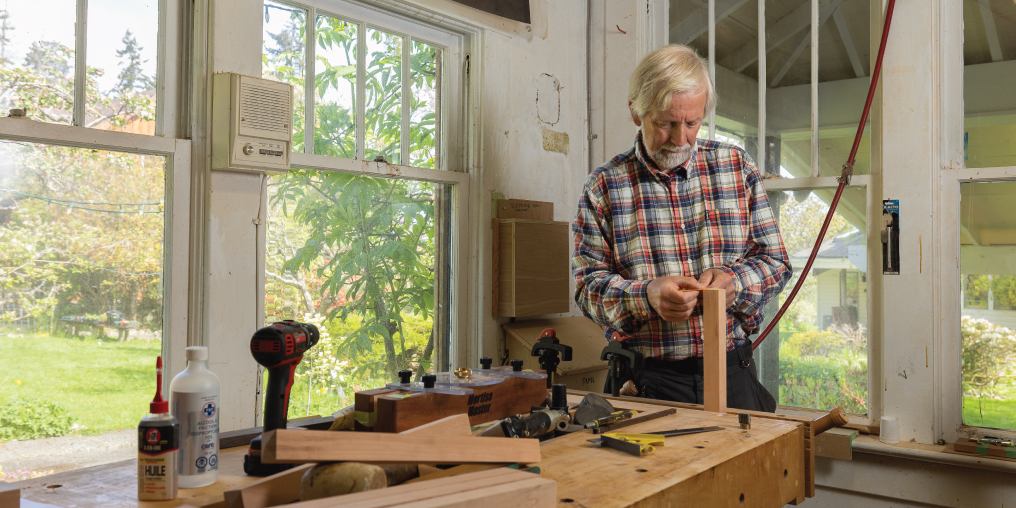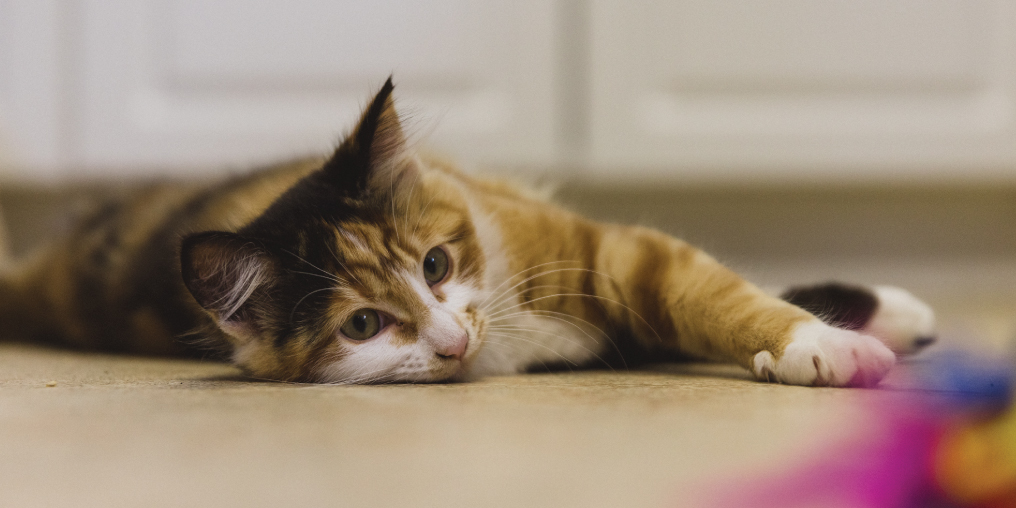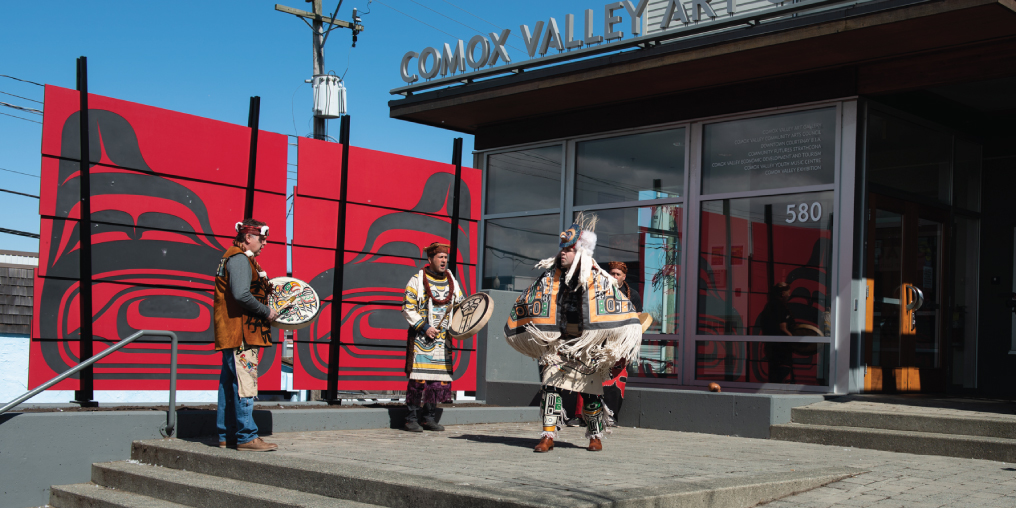Like most woodworking spaces, Sandpiper Studio is an organized-but-dusty collection of equipment designed for the exacting manipulation of wood. Surrounding these machines are a myriad of hand tools and neat stacks of wood ranging from the common to exotic. Outside, a colourful spectrum of flourishing plants waves gently in the ocean breeze coming off Comox Bay.
Woodworker Pieter Rutgers and his wife Kate moved here more than two decades ago after his retirement from the Vancouver Park Board, where he’d worked as a planner for 30 years. In his last decade with the Park Board, he was part of the executive team. “It was quite an intense job. We had lots of projects going on,” says Rutgers. “[With managing] staff consultants and contractors running around, it’s a busy job.”
Upon arriving in the Valley, Rutgers promptly volunteered with the Comox Valley Land Trust and Conservation Partnership, and he remains involved to this day. In fact, he recently used his career experience to help secure $3.5 million from Environment and Climate Change Canada. The money will be put towards the purchase of 1,000 acres in three ecologically important segments of the Puntledge River watershed.
But when he’s not building futures for fish and outdoorspeople, Rutgers is creating furniture, a hobby he began long before retirement, while still in Vancouver.
“I knew I would retire at some point and said, ‘Well, what am I going to do?’” he recalls. “I always enjoyed creating, whether it was parks or community centres or a pool.”
At first, he tried metalwork, but the medium didn’t align with his vision. “I took a course at BCIT [British Columbia Institute of Technology] but I just couldn’t get the metal to do what I wanted it to do. So I tackled woodworking.”
Rutgers took evening classes with the Vancouver School Board and used a woodworking shop at a local community centre to practice. He soon found it was a great way to take his mind away from work. “I could be in there for three, four, five hours,” he says. “I enjoyed it enormously.”
He began making furniture, mainly for his children. “I took basic courses. Now, there isn’t anything you can’t learn on YouTube.” It was a good apprenticeship. When retirement came calling, so did the Comox Valley. After a final and significant project during the 2010 Olympic Winter Games, he and Kate, an interior designer, looked west, beyond the Salish Sea.
“When we started house hunting on Vancouver Island, we were looking for a house with a second building.” They found a place in south Courtenay with a shop that was built in the 1920s. But what Rutgers thought would be a slow start to retirement started spinning like a table saw.
He received his first furniture-building commission after a former colleague admired a desk Rutgers had made and asked for one of his own.
“He was quite excited about the end result,” says Rutgers. “He said, “Oh, well, we need a buffet, and we need a TV stand, and we need a coffee table….” In the end, Rutgers made seven pieces, all of which went to a ski chalet in Whistler.
Being a man familiar with building on past projects, Rutgers parlayed the seven pieces into a portfolio he eventually showed at the Filberg Festival. “Lo and behold, I came away with two or three commissions at the end.”
His “retirement” was up and running like a real career.
Rutgers works in clean lines inspired mainly by the Arts and Crafts movement, and in the Danish style. He names visionary craftspeople like Gustav Stickley, Charles Rennie Mackintosh, and Frank Lloyd Wright as particularly influential. He occasionally collaborates with Kate, whose interior design skills help him take his ideas from mind to workbench. “We work together on some projects. I tend to come up with the concepts and she does a lot of the dimensioning for me, the details.”
Together on the seaside, they have kept as busy as a couple of intrepid sandpipers moving among the tides. For that, he feels fortunate. “I have a hobby that I get paid for. You know, how good is that?”





